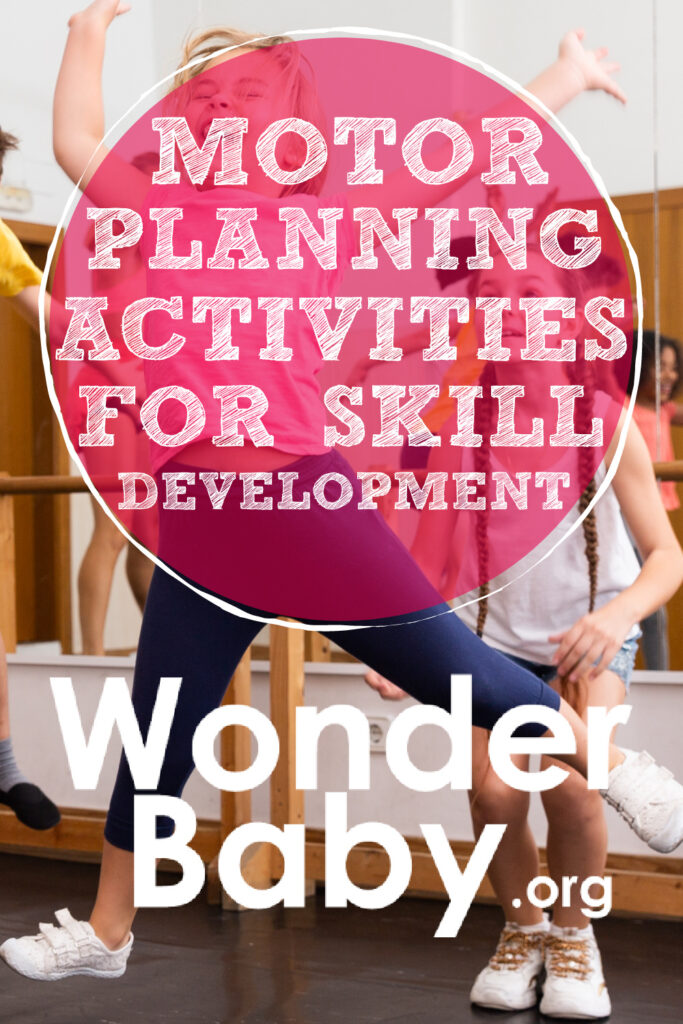Are you passionate about creating memorable experiences and bringing people together? If so, embarking on a career as an event organiser could be the perfect fit for you. In this blog, we will provide you with a comprehensive step-by-step guide on how to become an event organiser and pave your way to success in this exciting industry.
From acquiring the necessary skills and qualifications to building a strong network and gaining hands-on experience, we will explore all the essential elements that will set you on the path to becoming a successful event organiser.
So, if you are ready to dive into the world of event planning and turn your passion into a rewarding career, read on to discover the key steps you need to take to achieve your goal.
Understanding the Role of an Event Organiser
Event organizers play a crucial role in planning and executing successful events. They are responsible for coordinating all aspects of an event, from initial concept to final implementation.
The Responsibilities of an Event Organiser
Event organizers are involved in budgeting, venue selection, vendor management, marketing, and logistics. They ensure that all elements of an event come together seamlessly for a memorable experience.
Key Skills Required
To excel as an event organiser, one needs strong organizational skills, attention to detail, creativity, and excellent communication abilities. Adaptability and problem-solving skills are also crucial in the fast-paced event industry.

Acquiring Skills and Qualifications
Aspiring event organizers can acquire the necessary skills and qualifications to excel in the industry. To become proficient in event planning, individuals are advised to pursue relevant studies and gain practical experience.
Educational Qualifications
Event organizers can benefit from obtaining a degree in Event Management, Hospitality, or related fields. These programs equip individuals with essential knowledge in planning, coordination, and execution of events.
Additionally, pursuing certifications such as Certified Special Events Professional (CSEP) can enhance credibility and expertise.
Hands-On Experience
Gaining practical experience through internships, volunteering at events, or working for event planning companies can provide valuable insights and skills. Hands-on experience allows individuals to learn the intricacies of event organization and hone their organizational abilities.
- Intern at event management firms
- Volunteer at local events
- Work at event planning companies

Building a Network in the Events Industry
Networking is crucial for success in the events industry. Connect with industry professionals, attend conferences, and join online forums to expand your network.
Attending Industry Events
Attend industry events like trade shows, exhibitions, and networking mixers to meet potential clients and partners. Make a lasting impression by exchanging contact information.
Utilizing Social Media
Use social media platforms like LinkedIn, Instagram, and Twitter to showcase your work, connect with professionals, and promote your events. Stay active and engage with your audience regularly.
Creating a Business Plan
Aspiring event organizers need a robust business plan that outlines their objectives and strategies for success in the event industry. In this digital age, a well-structured business plan can act as a roadmap to guide you through the complexities of event management.
Research and Analysis
To kickstart your business plan, conduct thorough research and analysis of the event industry landscape. Identify your target audience, competitors, and market trends to form the foundation of your business strategy.
Utilize online resources and industry reports to stay updated on the latest event planning trends and consumer preferences in how to become an event organiser in the current year.
Financial Projections
Develop detailed financial projections that encompass all aspects of your event organization business. Estimate your startup costs, revenue streams, and potential expenses to ensure a sustainable financial model.
- Create a comprehensive budget that covers expenses such as venue rental, marketing, staffing, and logistics.
- Explore various financing options like loans or investors to secure the necessary capital for your event planning venture.
Securing Funding and Resources
When looking to become an event organiser, securing adequate funding and resources is essential for a successful event. One effective way to procure funding is by seeking sponsorships from companies or organizations that align with your event’s theme or target audience.
Utilize Online Crowdfunding Platforms
Consider leveraging online crowdfunding platforms to reach a larger pool of potential donors and backers. Platforms like Kickstarter and GoFundMe can help you raise funds by tapping into the power of social media and online communities.
Diversify Revenue Streams
Explore different revenue streams such as ticket sales, merchandise, and partnerships to supplement your funding efforts. Diversifying your income sources can provide stability and flexibility in managing event finances.
Planning and Executing Events
When it comes to becoming an event organiser, meticulous planning and flawless execution are key to success. Start by setting clear objectives and defining the target audience for the event.
Creating a Detailed Timeline
Develop a comprehensive timeline outlining all the tasks to be completed leading up to the event. Assign deadlines and responsibilities for each task to ensure everything stays on track.
Securing Venues and Vendors
Find suitable venues that accommodate your event size and requirements. Research and negotiate with vendors for services such as catering, audio-visual equipment, and decorations.
Marketing and Promotion Strategies
Utilize online and offline marketing channels to create buzz around the event. Develop a compelling marketing campaign to attract participants and sponsors.
Marketing and Promoting Your Services
As an aspiring event organiser, it is essential to master the art of marketing and promoting your services to stand out in the competitive industry.
Creating a Strong Online Presence
Utilize social media platforms such as Instagram and Facebook to showcase your past events and engage with potential clients. Consistent branding across all online channels can help establish credibility.
Collaborating with Influencers
Partner with influencers in the event planning space to reach a wider audience. Their endorsement can add value and authenticity to your services.
- Research and reach out to influencers who align with your brand values
- Create mutually beneficial partnerships for promotional activities
Managing Finances and Budgets
As an event organizer, managing finances and budgets efficiently is crucial for the success of your events. It involves planning, monitoring, and controlling financial resources to ensure that all expenses stay within budget.
Create a Detailed Budget Plan
Start by outlining all potential expenses for the event, including venue costs, catering, decorations, marketing, and staff fees. Ensure to allocate funds wisely to each aspect of the event.
Track and Monitor Expenses
Use budgeting tools or software to track your expenditures in real-time. This will help you stay on top of costs and identify areas where you may need to cut back or reallocate funds.
Handling Challenges and Problem-solving
As you embark on your journey to become an event organiser, you are likely to encounter various challenges along the way. One key aspect of succeeding in this industry is the ability to effectively handle these challenges and demonstrate strong problem-solving skills.
Adapting to Unexpected Changes
Event planning often involves dealing with last-minute changes or unforeseen circumstances. It’s essential to adapt quickly and find creative solutions to keep the event running smoothly.
Being prepared for unforeseen challenges can help mitigate their impact and ensure the success of the event.
Communication and Collaboration
Effective communication with clients, vendors, and team members is vital for overcoming challenges in event planning. Clear communication helps in problem-solving and ensures everyone is on the same page.
- Regular updates and meetings can help in addressing issues proactively.
- Collaborating with others allows for a collective effort in finding solutions.
Frequently Asked Questions
-
- What skills are important for becoming a successful event organizer?
- Key skills for event organizers include organization, communication, problem-solving, creativity, and attention to detail.
-
- How can I start a career as an event organizer?
- To start a career as an event organizer, consider gaining experience through internships, volunteering at events, taking relevant courses, and networking within the industry.
-
- What are the primary responsibilities of an event organizer?
- Primary responsibilities of an event organizer include planning and organizing events, coordinating logistics, managing budgets, securing vendors, and ensuring the event runs smoothly.
-
- How can I stay updated on industry trends as an event organizer?
- To stay updated on industry trends, event organizers can attend conferences, workshops, and networking events, join industry associations, and follow relevant blogs and publications.
-
- What are some common challenges faced by event organizers?
- Common challenges faced by event organizers include tight deadlines, managing multiple tasks simultaneously, satisfying client expectations, and dealing with unexpected issues during events.
Final Thoughts: Your Journey to Event Organising Success
Embarking on the path to becoming an event organiser requires dedication, creativity, and meticulous planning. By following the step-by-step guide provided in this blog, you have gained valuable insights into the world of event management. Remember, networking is crucial in this industry, so don’t hesitate to connect with professionals and attend industry events.
Furthermore, honing your organizational skills, attention to detail, and ability to adapt to changing circumstances will set you apart as a successful event organiser. Keep learning, stay updated with the latest trends, and never stop improving your craft.
In conclusion, becoming an event organiser is a rewarding journey filled with challenges and triumphs. With determination and passion, you can turn your dream of orchestrating unforgettable events into a thriving career.



